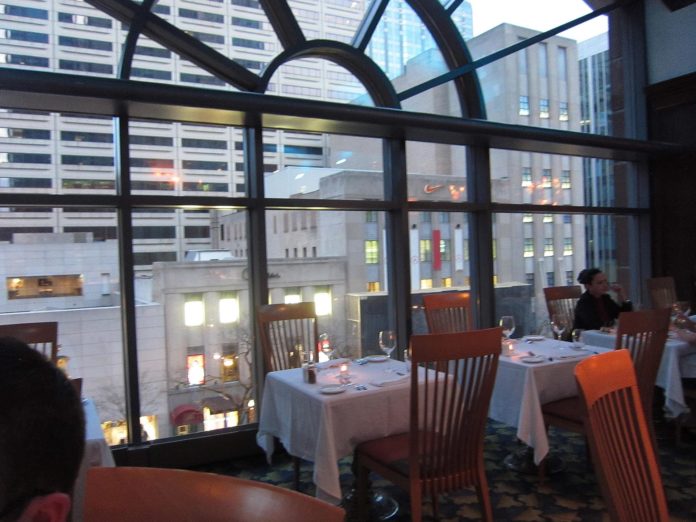The CARES act bails out homogeneous chains but ignores the local restaurants that have transformed every region of this country.
For a few months before the pandemic trapped us in our homes, I spent a fair amount of time driving around the Midwest. Scouting out new developments in the realm of food and drinks is central to what I do here at Esquire, and I was excited to see that there were plenty of new developments to check out in states like Indiana and Ohio and Missouri.
I took a tour of Ryan Morgan’s bakery, Sixteen Bricks, in Cincinnati, and I slid into a booth at Martha Hoover’s candlelit chapel of cocktails and vintage albums, Bar One Fourteen, in Indianapolis. I knew that I would be a dolt to visit Cleveland without dropping into Larder, a deli and bakery that has become recently famous for its pickles and pastrami. I drove straight there from Columbus and parked a block away at lunchtime. St. Louis impressed me most of all. Within 24 hours I had three meals in St. Louis that rivaled anything I could find in New York or Los Angeles: lunch at Winslow’s Table, dinner at Indo, and a solo brunch (I was the first person in line when the doors opened at 11 a.m.) at Balkan Treat Box, which serves Eastern European flatbreads good enough to make you stray from pizza.
As I binged my way through these states, it was not lost on me that all three of them — Indiana, Ohio, and Missouri — had gone for Donald Trump in the 2016 presidential election. Indiana and Missouri are core red states. Ohio (which pledged its electoral votes to Barack Obama in 2012) is a swing state so swingy that political observers have watched it for decades as if it were a weathervane. But I remember thinking that these Midwestern clusters of new bars and bakeries and restaurants — vigorously independent businesses, deeply personal businesses, places that tell us stories about culture and immigration and resiliency and nature — might represent a rising counterpoint, a kind of insurgency of delight, in regions of the United States that are still dominated by a monoculture of corporate chains.
These are bars and bakeries and restaurants that have, for lack of a better word, a funk to them. That regional funk is the secret ingredient that makes all that bread at Sixteen Bricks and Larder and Balkan Treat Box so delicious. I couldn’t help but think that the food clusters in these cities echoed, in spirit, the regional music clusters that flooded college radio stations with new voices and ideas during the Reagan/Bush years of the 1980s and early 1990s. Minneapolis. Seattle. The South Bronx. Athens, Georgia. Dayton, Ohio. For a Gen Xer like me, acts like R.E.M., the Breeders, Hüsker Dü, and Grandmaster Flash & the Furious Five didn’t just generate excellent music; they amplified and distributed ways of thinking that ran counter to the prevailing orthodoxy of political and economic power. …
But these are the restaurants that are most at risk of vanishing altogether as casualties of the coronavirus shutdown, and it probably shouldn’t surprise anyone that the Trump administration so far doesn’t seem to care…
To read the entire article from Esquire, click https://www.esquire.com/food-drink/restaurants/a32190986/cares-act-chains-independent-restaurants/


